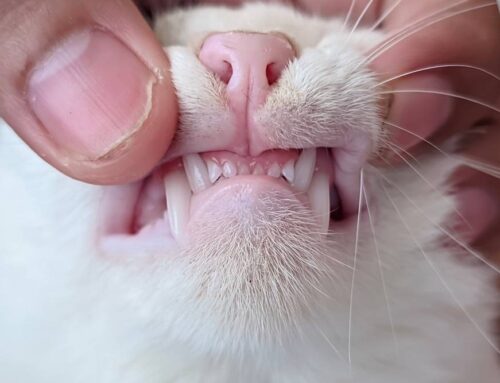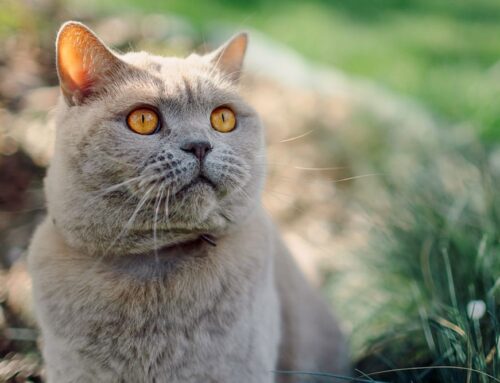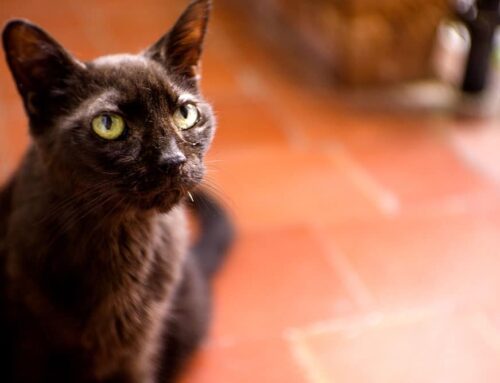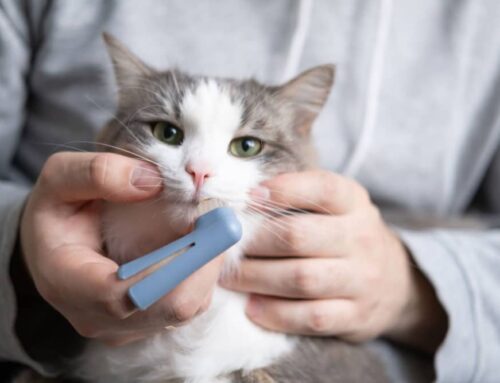Cats are often exceptionally sensitive, whether to a half-empty food dish, a rumpled bed, or loud sounds. A cat’s heightened senses enable them to be an excellent hunter and survivor in the wild, but as a domestic pet, those same traits can make them susceptible to noise aversion.
A cat’s noise aversion can occur any time of year, not just during July Fourth fireworks displays. Learn how to help your feline friend respond with ease to startling sounds, by reading our Just Cats Clinic team’s explanation of noise aversion and our description of the signs cats with this condition usually exhibit.
What is noise aversion in cats?
Noise aversion is generally a fear response to a certain sound or loud noises. Typically, noise aversion develops in response to loud or startling sounds that do not come in a pattern, such as thunder, fireworks, or gunshots. Other sounds that can trigger a cat’s noise aversion include:
- Traffic
- Construction
- Loud music or TV
- Children playing
- Vacuum cleaners
- Large household appliances
- Heavy machinery
Pets commonly experience noise aversion, although the condition frequently goes undiagnosed, because their owners often miss subtle stress signals that indicate fear of a loud sound. This behavioral condition can be caused by a variety of factors, including genetics, improper socialization, past experiences, and environmental factors. For example, a cat who has experienced trauma or neglect, such as living as a stray, may be more likely to develop noise aversion, as are cats who live in noisy, chaotic households.
How can I determine whether my cat has a noise aversion?
Detecting cats’ noise aversion signs is more difficult than spotting those of dogs, because cats are by nature seclusive creatures who are prone to hiding. Depending on your cat’s personality, they may also cling to you when nervous, but many cats prefer to go into hiding when scary sounds emit. If a startling or loud sound rings out, watch for your cat to exhibit the following noise aversion signs:
- Hiding
- Escaping
- Pacing
- Restlessness
- Dilated pupils
- Excessive vocalization
- Hypervigilance
- Trembling
- Salivating
- Excessive grooming
- Inappropriate elimination
5 strategies to help your cat cope with noise aversion
Although noise aversion can be a complex behavior problem to manage, you can take steps to minimize your cat’s fear of their sound triggers. During fireworks displays and thunderstorms, or when startling sounds occur, help ease your cat’s distress by following these five strategies:
- Minimize your cat’s exposure to loud sounds. If you can control your cat’s exposure to their sound triggers, you can greatly reduce their fear. For example, when you run the vacuum cleaner, confine your cat to a room on the other side of the house. Place as much distance as possible between your cat and the loud noise to alleviate their stress.
- Remain calm when unsettling sounds occur. Your cat can sense your emotions, so when you’re upset because they are anxious, your feline friend can become more unsettled. Remain calm in the face of a thunderstorm or fireworks display, and avoid scolding or over comforting your cat. Repeatedly telling your cat, “It’s OK, it’s OK, it’s OK,” can unsettle your feline friend more, as they detect stress in your rapid words and high-pitched tone. Speak to your frightened feline friend in a soothing tone, pet them gently, and engage in distraction techniques.
- Create a safe environment for your cat. When you know a loud event is going to occur, such as a large family gathering, you can set up your cat in a quiet haven where they can relax in peace. Choose your most soundproof room, and create a feline sanctuary that has a lofty perch, cozy hideout, food puzzle, interactive toy, and soothing pheromone diffuser. You can also play white noise or classical music to promote a calming atmosphere, or turn on a nature documentary to entertain your cat.

- Help your cat develop a positive association with loud sounds. When trying to help your cat form a positive association, or a less unpleasant one, with loud sounds, come armed with their favorite treat. Find a recording of your cat’s noise aversions on a phone app, and play the sound at the lowest comfortable volume during which your feline friend exhibits no distress signs. Regularly reward your cat with treats while slowly increasing the volume, stopping when they exhibit anxiety signs. This process will take time, so be patient while you work to reduce your cat’s fear.
- Seek veterinary help. Over time, noise aversion typically worsens without management, which can cause your cat to experience serious physical and emotional problems. So, although your cat’s anxiety when hearing loud sounds does not seem to be much of an issue, take action immediately. Ask your Just Cats Clinic veterinarian for help devising a multimodal treatment plan, which will likely consist of nutraceuticals, medications, and other anxiety-alleviating aids. You can offer your cat these products on an as-needed basis, or you can administer them to your feline friend long-term to help combat generalized anxiety and reduce their noise aversion.
Don’t wait until July 3 to request anti-anxiety medication for your cat’s fireworks noise aversion. Schedule an appointment with our Just Cats Clinic team to discuss the best options for soothing your feline friend’s distress caused by loud noises.













